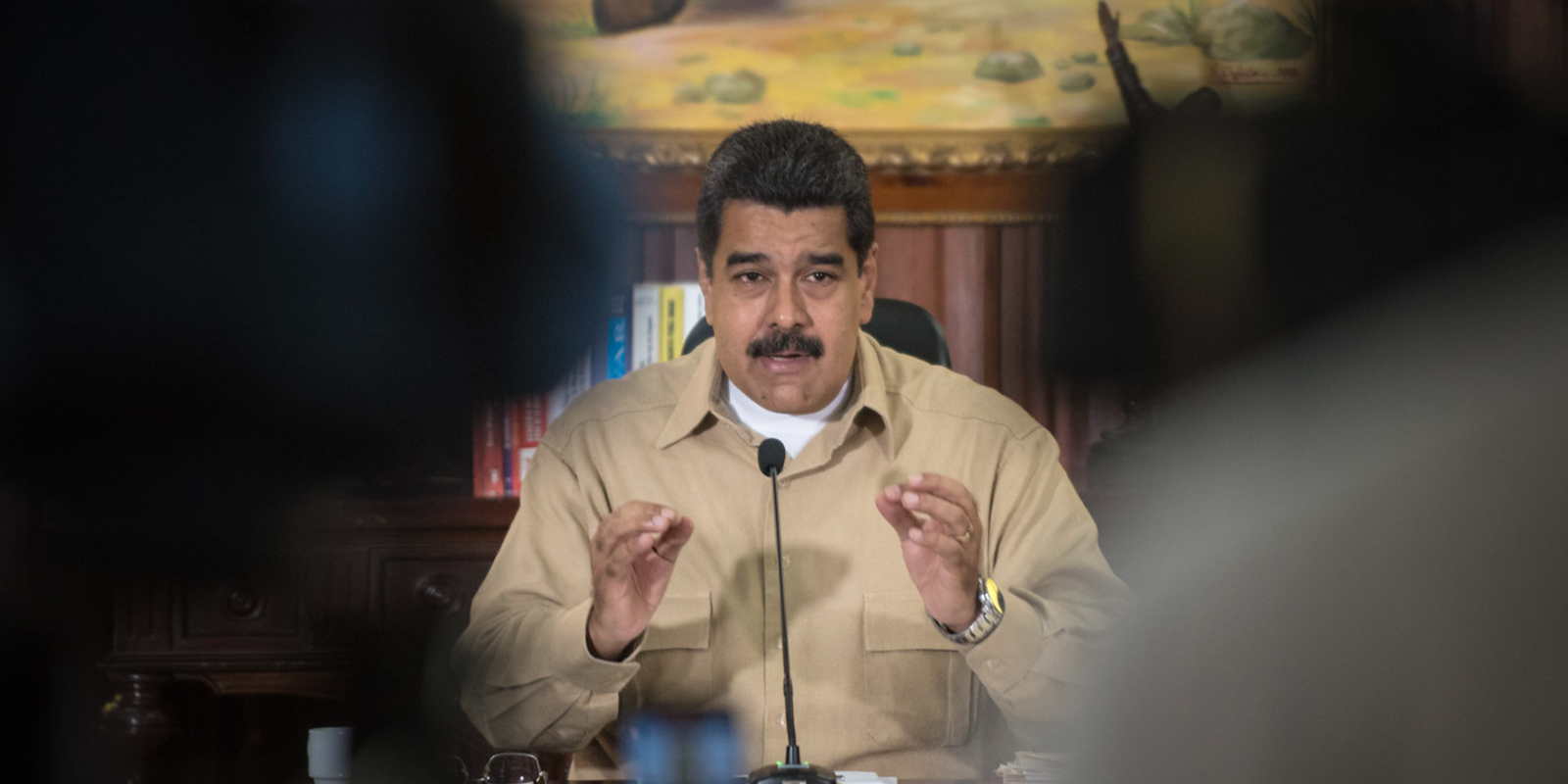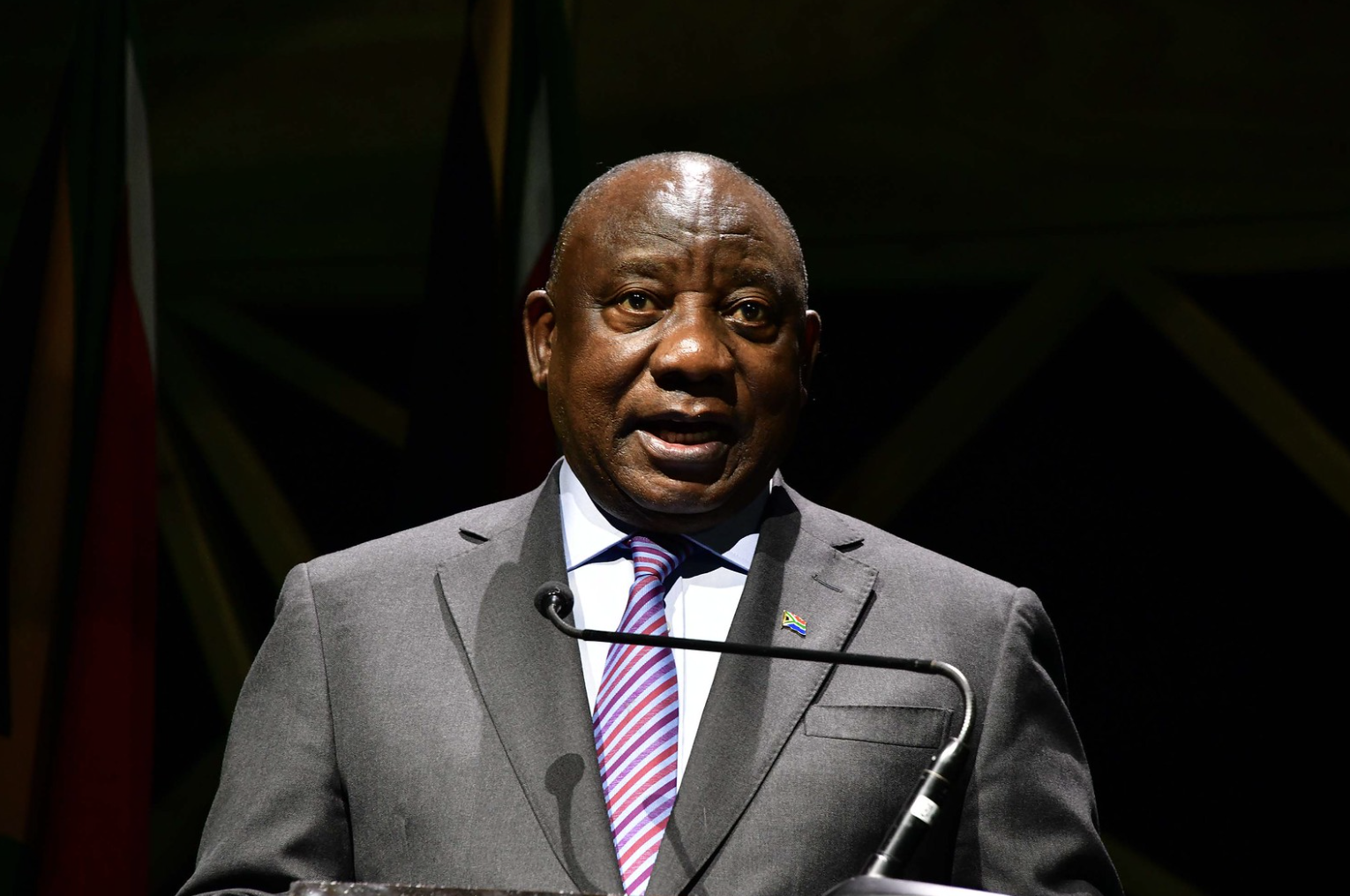News
Maduro’s Way Out Would be the End of BRICS
BRICS would do well to think before it admits Venezuela, unless it wants to make the protection of autocrats its primary mission.

Former Director, The Brenthurst Foundation

Venezuelan political leader, pro-democracy activist and Sakharov prize laureate

As the pressure ramps up on his illegitimate and ruinous rule, Nicolás Maduro, the electorally rejected president of the Bolivarian Republic of Venezuela, has one last card to play: membership in the BRICS grouping.
He hopes that this will afford him the diplomatic protection of the BRICS members, including the original four of Brazil, Russia, China, and India, and latecomer South Africa, along with the recent additions in the UAE, Ethiopia, Saudi Arabia, and Egypt. Most of these countries, after all, don’t have to worry about the niceties of their people’s political choices or popular welfare, both concerns that Maduro has evidently turned into an art form.
Maduro believes that, along with support from Cuba, a firm revolutionary icon of another authoritarian state, he can shield himself from his people’s wishes and needs. But there are problems with this, not least because his people are voting with their feet as the economy has imploded; just as they continue to do in Cuba, whatever its iconic status.
BRICS would do well to think before it admits Venezuela unless it wants to make the protection of autocrats its primary mission. Until now, BRICS has – at face value at least – been all about economic development and growth. Adding a wrecked economy run by a man who has openly defied the electoral will of his people runs counter to that narrative.
Venezuela’s massive problems
According to the UN, over 80% of Venezuelans live in poverty, with more than half the population in extreme poverty, unable to buy basic foodstuffs. Since the launch of Hugo Chavez’s ‘Bolivarian Revolution’ in 1999, per capita income quadrupled with an increase in the price of its principal export, oil (the only other major export is cocaine), but then fell dramatically to now below 1999 levels, with the compounding effects of a lack of investment in the oil sector (with nationalisation), the diversion of funds to statist enterprises, rampant corruption, and inflation over 100%.
The consequence has been the departure of more than a quarter of the country’s population, most of them to elsewhere in Latin America, and chronic crime and insecurity. The murder rate in Caracas is estimated to be at least twice as high as South Africa’s already Olympian 45 murders per 100,000 citizens. It’s a mess created by politics and which only politics can sort out.
That was the view of the majority of Venezuelans in the July 2024 election which was, according to the parallel and official numbers, won handsomely by the opposition candidate Edmundo Gonzalez Urrutia and his party leader, Maria Corina Machado.
Machado was prevented from standing by the regime, which is now investigating both her and Gonzalez for announcing alternative election results – another tactic in the playbook for authoritarians who hold pretend elections, whether this be Putin in Russia or Museveni in Uganda. But this time, even the fig leaf of electoral respectability has fallen, given the margin of victory by the opposition tired of the misrule, violence, and hardship.
Brazil, a BRICS member, has been actively involved in the crisis in Venezuela. It has not recognised the fraudulent results, questioned the lack of transparency and is asking for the printouts of polling station results to be published.
Brazil is now leading a group of Latin American countries that is seeking to respect the true results of the 28 July elections. On the other hand, Maduro has stated that he will move away from the US and Europe and move towards the ecosystem of BRICS in order to stay away from sanctions.
This actually means that BRICS, for Maduro, is a political, economic, and international bloc that allows him to continue with impunity for his crimes against humanity, as recorded by the International Criminal Court and the UN, and to be unimpugned for the plundering and the massive corruption that has destroyed Venezuela.
The democracy toolkit
So instead of providing Maduro and, by extension, autocrats elsewhere with cover, what should democrats do? First and foremost, democrats need to counter the narrative that democracy is a spent force and in some sort of crisis. This narrative has been made prominent by those who are threatened by the expression of popular will and then, lazily, adopted by those in democracies who are disenchanted with not winning elections.
The real narrative is very different. This year some four billion people will cast their vote in dozens of countries around the world. Many of these elections have already occurred and, if you ignore the blatantly stolen elections of Russia, Rwanda, and Venezuela, they have re-energised democracy.
In Senegal, an opposition leader took power following an election victory. In the UK, France, and elsewhere, governments have been replaced, injecting new life into those countries. In South Africa, a well-entrenched liberation movement was demoted from its majority and had to establish a coalition government. In India, Prime Minister Narendra Modi saw his support decline to below 50% and had to do the same.
There is no other political system that is capable of renewal of this nature, toppling leaders and replacing them with others who take a different policy view. While it may be fashionable among the well-heeled revolutionaries of the West to bemoan the horrors of democracy, make no mistake, ordinary people around the world are choosing to use the democracy toolkit to improve their lives.
BRICS is hardly a hotbed of democracy, containing as it does the likes of Iran, Russia, and China. But it has, until now, avoided becoming an advocate of authoritarianism. Rather than protect their nascent movement, the leaders of BRICS would be well advised to steer well clear of protecting Maduro’s regime.
To loosely borrow from Pink Floyd, all in all, it would cause the BRICS to fall.
Leopoldo Lopez is an exiled Venezuelan opposition leader who was imprisoned on trumped-up charges under Maduro.
Greg Mills is the Director of The Brenthurst Foundation.
This article originally appeared in Daily Maverick.


